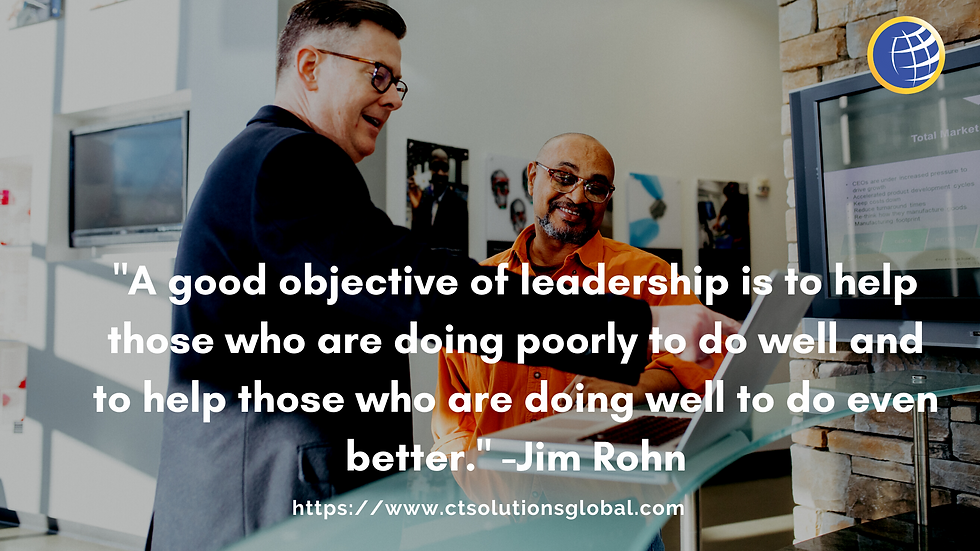Why Both Training and Coaching are Important for Leaders
- Marylen Ramos-Velasco
- May 9, 2023
- 2 min read

Both training and coaching are important for the development and growth of individuals in various fields, including leadership.
Training provides a structured learning experience that helps individuals acquire new knowledge, skills, and competencies. It typically involves a classroom-style approach, where an instructor delivers content to a group of learners. Training is often used to introduce new concepts or technologies, to ensure compliance with regulations or company policies, or to provide standardized knowledge across a large group of individuals.
On the other hand, coaching is a more personalized approach that focuses on the individual's specific goals and needs. Coaches work one-on-one with individuals to help them identify their strengths and weaknesses, set goals, and develop plans for improvement. Coaching provides a more tailored approach that can help individuals to develop skills and competencies that are specific to their needs, and to apply those skills in their unique context.
Training and coaching are two distinct approaches to developing skills and knowledge, although they can complement each other in many cases. Here are some key differences between training and coaching:
Focus: Training is focused on transferring knowledge and teaching specific skills, while coaching is focused on helping individuals develop their own insights, improve their performance, and reach their goals.
Delivery: Training is typically delivered through structured courses or programs, often in a classroom setting, and is often one-way communication from the trainer to the trainee. Coaching, on the other hand, is delivered through one-on-one interactions, often in the form of ongoing conversations between a coach and a coachee.
Approach: Training tends to be more prescriptive and standardized, with a set curriculum and a specific agenda. Coaching, on the other hand, is more flexible and tailored to the individual needs of the coachee.
Outcome: The outcome of training is often measured by how much knowledge or skills trainees have acquired, while the outcome of coaching is measured by the individual's growth and improvement in specific areas, such as leadership or communication skills.
Timing: Training is often done as a one-time event, while coaching is an ongoing process that can last for weeks, months, or even years.
In summary, while training is focused on transferring knowledge and teaching specific skills through structured programs or courses, coaching is focused on helping individuals develop their own insights, improve their performance, and reach their goals through ongoing conversations and tailored support.
Share with us how we can help you with your current priorities and/or challenges. Find out more how can we collaborate by scheduling a free 30 minute call now!

Comentarios